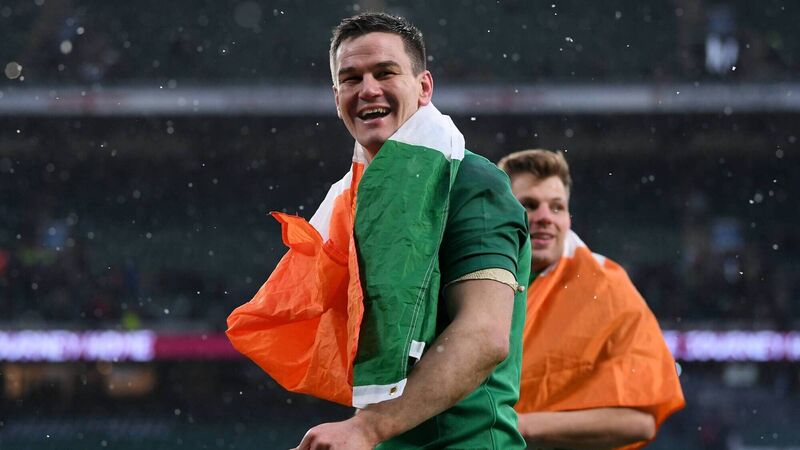‘When Johnny Sexton speaks to Leinster or Ireland, emotion is always close to the surface’

Johnny Sexton of Ireland celebrates victory after the Six Nations win over England at Twickenham. Picture: Laurence Griffiths/Getty Images
You’ve likely heard lately what a struggle it could be for Keith Earls to play rugby at the highest level, but it’s only when you actually read his book that you appreciate what sustained him. Along with all the support and the grit that he had, what kept him going was his love of the game and the moments it could provide.
Like the final match of last season’s Six Nations against England when he made a somersault to catch and finish a cross-kick from a certain team-mate; the only pity was with the score disallowed, the smile vanished too. Or the try he scored a couple of games earlier that they didn’t erase, and the brilliance of the person who again provided the assist meant Earl’s smile couldn’t be wiped off either. In the closing minute of a blowout win against Italy, Ireland had brought the ball up to the 5m line when suddenly Johnny Sexton whipped out a pass to Earls off his left hand, “an absolute bullet”, taking out two Italian defenders and leaving the Munster man with a handy touchdown in the corner.












